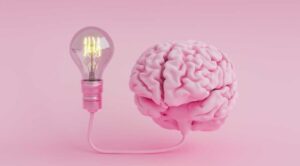Today, it is generally accepted that political leaders use both rational and emotional communication strategies to influence voter behavior. Research shows that emotional factors are only as influential as logical factors in voters’ decision-making processes. Although the historical origins of emotional manipulation in favor of power date back to ancient times, recent scientific research has made the use of these strategies more sophisticated and effective.
While there is a claim that voters actively use logical thought processes in their political decision-making, research shows that emotional influences are actually more dominant. Moreover, voters are not always able to evaluate information objectively, suggesting that their emotions and reactions drive their decisions.
Emotions clearly show the role and power of mass media in influencing voters. Mass media, which is at the center of political communication, develops and transforms the techniques and tactics of election campaigns. Therefore, it is necessary for political leaders to reach voters directly through mass media in order to reflect their message strategies in social transformation. Therefore, the emotional changes of the individual discussed in this issue are monitored within social mobility and political communication strategies are shaped accordingly. Emotions that come to the fore during election periods are as follows;
Election periods are also associated with uncertainty. The uncertainty of a particular outcome can increase concerns about the future and raise stress levels. Election periods often cause great excitement and enthusiasm. Support or hope for a particular candidate or party can lead to increased positive emotions and excitement in individuals.
Some individuals may become despondent or anxious about the election results. Concerns that the election of a particular candidate or the implementation of certain policies will have negative consequences may increase these feelings. Election periods can also encourage feelings of togetherness and solidarity. Feelings of unity and solidarity can arise among people who support a particular candidate or party.
As a result, the emotional effects of political elections can vary widely and affect individuals’ overall emotional state.
Reference: Psychologist Merve Altındağ
Akdağ, M., & Özdemir, M. (2021). Seçmen Kararlarında Duyguların Rolü ve İşlevi: Duygusal İçerikli Reklamlar Üzerine Bir Analiz. Selçuk İletişim, 14(2), 895-926.
Kurtbaş, İ. (2015). Seçmen Psikolojisine Dair Psiko-Politik Bir Tahlil “Politik Psikoloji Ekseninde Deneysel Bir Çalışma”. Journal of Administrative Sciences and Policy Studies, 3(2), 91-11.
Bağcan, S., SAVAŞ, S., & TUNÇAY, E. (2021). SOSYAL MEDYADA DEMOKRASİYE LİDER MÜDAHALESİNİ GÖZLEMLEMEK: 2020 ABD BAŞKANLIK SEÇİMLERİ’NDE TRUMP VE BIDEN’IN TWEETLERİNİN İÇERİK VE DUYGU ANALİZİ AÇISINDAN İNCELENMESİ. Turkish Online Journal of Design Art and Communication, 11(3), 1073-1097.




